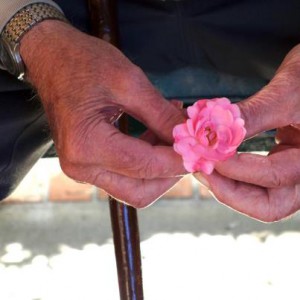Wednesday
Community ArticlesMindfulness in Healthcare
by Aarti Tejuja, Chicago
The Sakyong’s 2020 Vision has inspired many members of the Chicago Shambhala Center to think of new and inventive ways to bring enlightened society and mindfulness practices into the larger world. As part of this vision, Acharya Mitchel Levy, a senior teacher in the Shambhala tradition and the Director of the Medical Intensive Care Unit at Rhode Island Hospital, contacted Chicago sangha member, Ira Abrams about a mindfulness in medicine program that he had previously taught in Providence, Rhode Island.
Abrams was inspired to bring mindfulness out to an audience that might not otherwise engage in the practice, and soon, he started assisting Acharya Levy with bringing the program to Chicago health professionals. He consulted with sangha members such as Alice Dan, Jan Jercinovic, Blessie Selvig and others who had experience in local hospitals and medical schools.
The program, now called Dignity and Death, was born, and soon, the Chicago Shambhala Center partnered with the Chicago End of Life Coalition (CECC) to bring the program to Rush Medical Center, which has one of the biggest hospice programs in the country. CECC director, Loretta Downs, and Dr. Sean O’Mahony, director of the hospice program at Rush, were two of the people instrumental in turning this vision into a reality.
The Dignity and Death program was created to help clinicians begin cultivating the compassionate skills needed to assist patients and loved ones. Studies show that clinicians, while truly caring about their patients, are often uneasy talking about dying. Studies have also found that families are increasingly unhappy with the care their loved ones receive while facing end-of-life. The program will assist clinicians in exploring meditation practice as a basis for uncovering inherent compassionate skills to improve communication with patients and families.
Blessie Selvig, an RN for more than 25 years, has first-hand experience of why this program is so important.
“As healthcare professionals, we tend to assume that our natural ability to communicate is sufficient. Good intentions, experience and knowledge are usually inadequate to rise to challenges inherent in dealing with birth, old age, sickness, and death. Especially with end of life issues, where the stakes are high.
“Misunderstanding is common; we encounter assumptions, biases and our own fear which can obscure communication and comprehension. Communication is emotionally charged and absolutely critical. Mindfulness and awareness practice in guiding patients and families through these difficult times can enhance understanding and facilitate problem solving even when communication is difficult and requires greater skill than anything else we do,” says Selvig.
Jan Jercinovic, an oncology nurse who has been working with cancer patients on a daily basis for the last 15 years, knows why mindfulness can be so powerful with a patient who is terminally ill. Jercinovic attended Naropa University in the mid-80s and considers her training in mindfulness there to be the most important skill she acquired. She continues to use her training everyday with her patients.
“Patients that are terminally ill or are dying can feel frightened, angry and guilty, as though somehow they’ve failed. They often ask themselves what they’ve done wrong. When a caregiver can allow a patient to simply feel what they feel and let them just be where they are without judgment, or thinking they have to fix something, it is extremely powerful. As a caregiver, it is important not to project your fears and anxiety about sickness and dying on the situation. I often say to my patients – you are the patient now with this sickness, this challenge…and I am the nurse, standing on this side. But my day will also come, because sickness and death is a reality for all of us. No one escapes it. I find that this breaks down the barrier of duality between the patient and healthcare provider. The space opens and it’s just two human being there together. The space is tender, open, and honest…quite powerful.”
~~
Dignity and Death offers a total of 10 Hours of CME or Continuing Education Credit for Physicians, Nurses, Respiratory Therapists and Social Workers. Click here for more information about the program and to register. Acharya Levy will offer Dignity and Death next year in New York and Boston.
For more information about Rush, a not-for-profit academic medical center, please click here.
For more information about the Chicago End-of-Life Care Coalition, please click here.

















